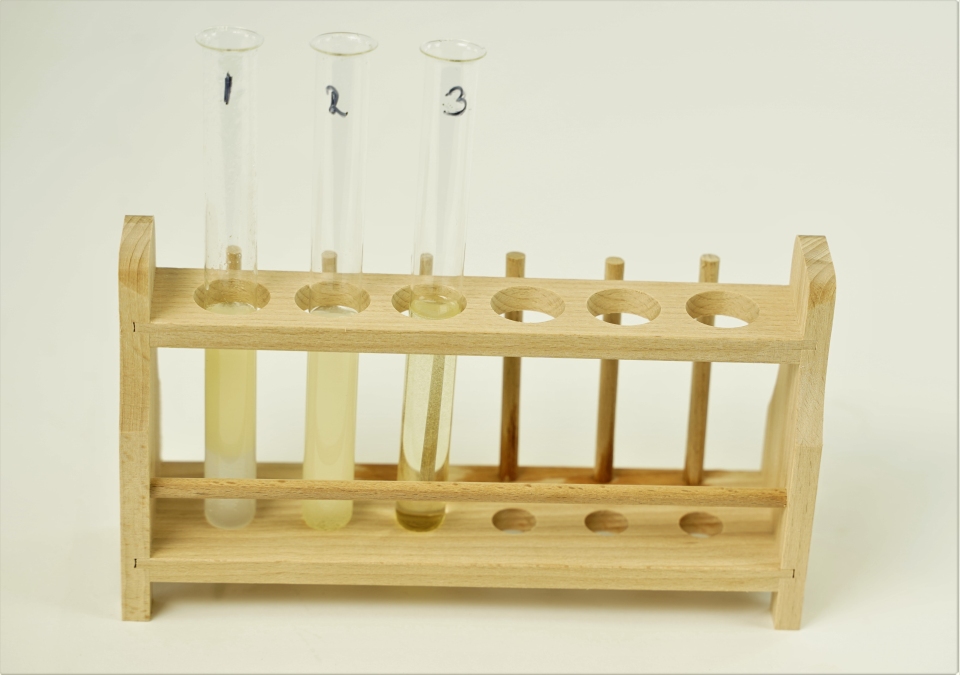Principle
Not all substances are soluble in water. For example, some substances can only be dissolved in "oils or liquid fats" (these substances are called fat-loving). Some substances can only be dissolved in water (these substances are called water-loving). In this experiment, the solubility of fats and oils is investigated. Students observe that oils or fats cannot be dissolved in water, but they can be dissolved in acetone or gasoline, for example.
The pupils thus learn about an important substance property: lipophilic and hydrophilic. This substance property is particularly important when mixing and blending liquid starting materials of a reaction. If both liquids are immiscible with each other, no reaction will take place between the two liquids (without further aids). The choice of a suitable solvent (lipophilic or hydrophilic) therefore has a great influence on the course of a chemical reaction.


